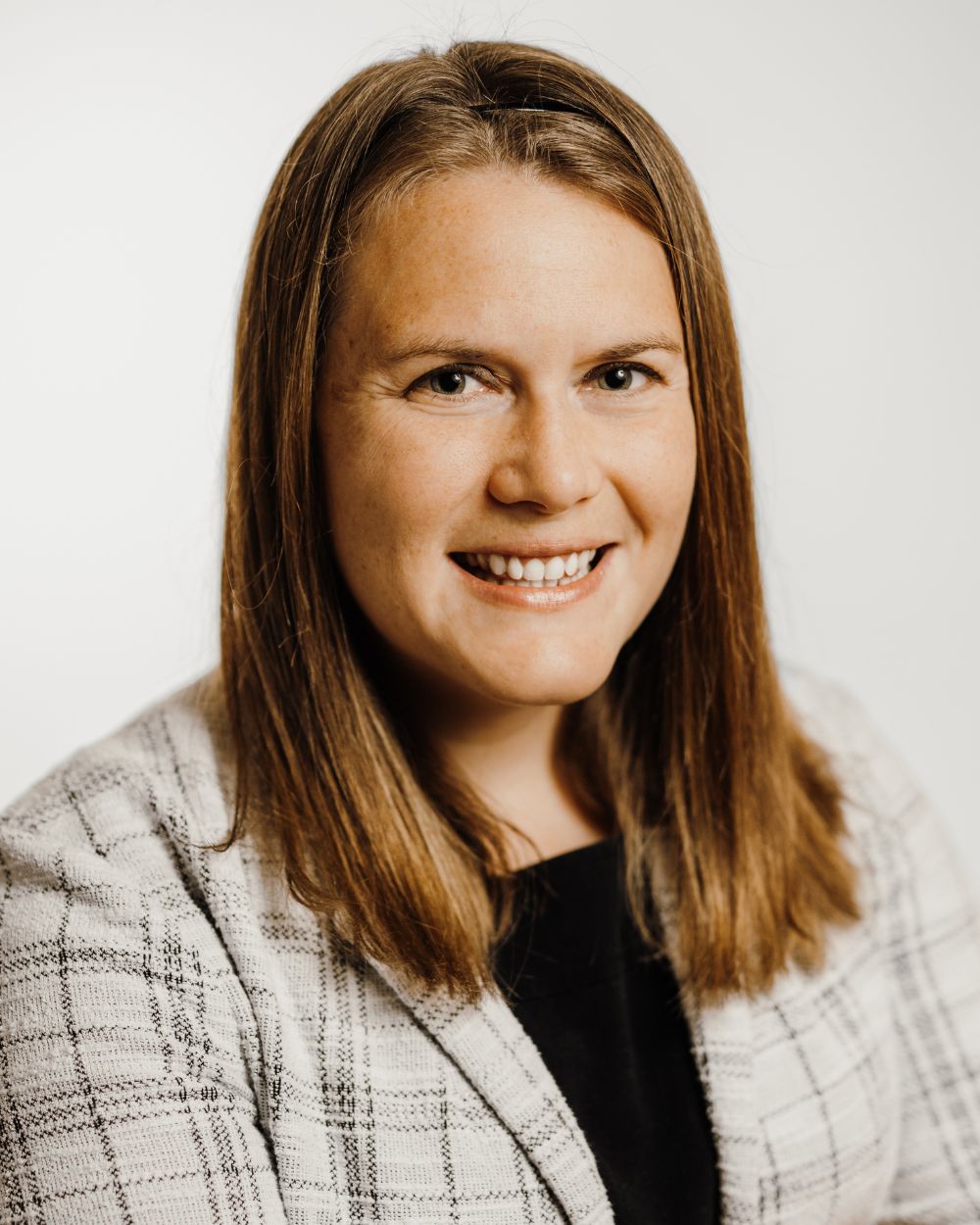Is Data Integrity Impacting Your Fundraising Results?

If you have experienced frustration, disappointment, or confusion in managing donor data, welcome to the club! According to the 2023 Nonprofit Tech for Good report, 67% of nonprofit organizations rely on a donor database to track donations and manage donor communications; yet few fundraising professionals enter the field with experience in database management.
As the nonprofit sector becomes more data-driven, organizations that are equipped to leverage their donor data have a significant advantage in an increasingly competitive fundraising environment. Whether your organization is seeking to boost your annual fund or preparing for a campaign, consider how a data strategy and data integrity can advance your fundraising efforts.
CFA Definitions:
- Data Strategy: An organization’s articulated objectives, established practices, standards, and protocols to consistently collect a defined set of data to power insightful reporting and inform decision making.
- Data Integrity; Data Hygiene: The ongoing process of ensuring that data stored in a database is consistent, accurate, up-to-date, and error-free.
DATA INTEGRITY’S IMPACT ON FUNDRAISING
While data integrity may seem far removed from an organization’s fundraising results, having streamlined, centralized, and error-free donor data is directly correlated to dollars raised and offers a strong return on investment for organizations willing to roll up their sleeves.
With more than 10 years’ experience in prospect management and data analytics, CFA Senior Manager of Prospect Management Stephanie Willis partners with nonprofit organizations to refine their data strategy and improve data hygiene. “While data cleanup may not be as glamorous as other fundraising strategies, accurate and consistent donor data enables fundraising teams to deploy resources effectively and increase their productivity,” notes Stephanie.
According to Stephanie, valid data unlocks fundraisers’ ability to improve donor retention and build stronger relationships with donors at scale through segmentation and personalization; however, customized donor outreach is only as impactful as the data is accurate. Correctly listing donor names and addresses, eliminating duplicate entries, identifying donors who are part of the same household, and removing recently deceased donors from a mailing list, for example, are critical to maintaining close ties with top donors.
Having reliable donor data also enables fundraising leaders to analyze trends to inform their future fundraising strategies while at the same time gaining a deeper understanding of their organization’s current and potential donors. CFA Senior Manager of Data Solutions Dan Alberti leads data analysis components of CFA projects and collaborates with Stephanie to assess specific data needs of CFA clients. As Dan shares, “Consistently maintained donor data enables organizations to prospect from within their database, identifying promising and sometimes surprising donors from their existing constituents.”
Bottom line: Data integrity plays a pivotal role at every stage of the donor cycle, from identifying new prospects to cultivating and sustaining relationships with current donors.
COMMON DONOR DATA PITFALLS
Despite the proliferation and advanced capabilities of donor database applications and platforms, corresponding tools and reporting capabilities cannot make up for defective data or deficient data management. Challenges associated with donor data typically stem from:
- Poor data integrity (i.e. unformatted addresses, improper capitalization of names, undocumented gift intent);
- Inconsistent data organization (i.e. data in multiple databases, inconsistent use of fields); or,
- Both, which is usually associated with a deficient organizational data strategy.
Organizations confronting challenges with reporting or data inaccuracies tend to assume there is a better donor database out there to meet their needs. While switching to a new database may seem like a quick fix, doing so without addressing underlying issues is akin to fixing a broken arm with a band-aide. As Stephanie shares, “Databases are ultimately a user-generated product. It comes down to consistent data practices and making the most of the system you have.”
In working closely with a variety of nonprofits to identify the root cause of their data inconsistencies, Stephanie has helped each organization design customized, comprehensive data strategies with step-by-step recommendations for how to clean data and build processes to ensure the data remains clean going forward. For one client, this also involved cleaning the data in preparation for a database migration to a new system.
Before investing the time and energy in a database migration, which can compromise data integrity when data input fields are not aligned between disparate systems, organizations should first diagnose the problem they are seeking to solve and identify what they are hoping to accomplish with data. The answers to these questions become the foundation of an organization’s data strategy.
IMPROVING DONOR DATA STARTS WITH STRATEGY
The prospect of cleaning up donor data can feel overwhelming and ambiguous, especially for fundraising teams with limited capacity or expertise in database management. Taking a step back to assess your data integrity and outline your data strategy will pay dividends when it is time to clean up your data.
According to Dan, an organization’s data strategy should be grounded in the data needs, responsibilities, and capabilities of all staff members. To ensure consistency and completeness of data collected, an organization’s data strategy should document:
- Purpose: Why data is collected.
- Process: Who collects the data and where it is stored.
- Protocols and Definitions: How data is recorded and formatted.
While a documented data strategy is critical to sustainable data hygiene, donor data must be championed by leadership with buy-in from all team members. CFA typically conducts interviews and convenings for all data stakeholders to build understanding, bridge gaps, and create buy-in around solutions that span the needs of all data users. “Our goal is to ensure that the solutions we provide are universal and evergreen,” shares Stephanie.
By adopting a future-orientation to donor data (i.e. capturing and organizing data in a way that will be resonant to and pertinent for future staff), organizations will leverage the benefits of complete donor data in the present while laying the groundwork for future fundraising success.
A PHASED APPROACH TO CLEANING DATA
Once your data strategy is defined, a donor data audit will illuminate specific gaps and opportunities for improvement based on current hygiene levels. CFA’s data audits usually include an analysis of demographic information, giving data, portfolio usage, and moves management processes accompanied by specific cleaning solutions based on the type of data and extent of cleanup required.
When the time comes for data cleaning, CFA advises a tiered approach by categorizing data points according to level of priority and donor segment to break the process into manageable phases while ensuring the strongest return on investment throughout the cleanup process.
While CFA provides customized recommendations to each client based on their unique goals, objectives, and significant data disparities, the following example illustrates a three-tiered approach based on the data’s degree of influence on fundraising:
- High priority fields often include deceased individuals, contact information, constituent codes, and giving details.
- Medium priority fields can include portfolios, events, relationships, birthdate, marital status, and titles and prefixes.
- Low priority fields may include opportunities, actions, notes, and other custom fields.
Pinpointing the specific types of data that may be hindering productivity or limiting a fundraising strategy can be helpful in prioritizing the data cleanup process as well. Ultimately, an organization’s data strategy and the fields prioritized for data cleanup must be maintainable in order to meaningfully advance fundraising results.
CONTACT US
Building your organization’s data strategy and improving donor integrity requires a long-term commitment at all levels. As Stephanie and Dan can attest, updating data fields may be time-intensive, but determining the strategy is often the hardest part.
By taking an approach centered on the donor data that will inform and enhance fundraising, organizations will ensure their data cleaning efforts will result in a strong present-day return while setting up their organization for future fundraising success.
If you are interested in exploring opportunities to improve your donor data strategy, contact CFA today to see how we can help.
Stephanie Willis, Senior Manager, Prospect Development
Stephanie is passionate about helping nonprofits understand the “science” of fundraising, and how to effectively use data and research to enhance the “art” of fundraising. Stephanie has over ten years of experience in prospect research, prospect management, and data analytics at both higher education and nonprofit organizations.
Most recently, Stephanie was the Senior Manager of Research and Data at Marian University in Indianapolis, Indiana. In this position, her primary responsibilities included serving as the database administrator and providing prospect research and management support for Marian University’s Forging Leaders Campaign. Prior to Marian University, Stephanie worked at the United Way of Central Indiana where she was tasked with creating a new prospect research unit within the fundraising department.
At CFA, Stephanie’s main responsibilities are establishing strategy, procedures and processes for the areas of prospect research, prospect management, and data analytics, while also providing operational support for client campaign initiatives.
Stephanie is Blackbaud certified in Raiser’s Edge NXT and Raiser’s Edge, and has a master’s degree in library science. Additionally, Stephanie is a Gallup-certified Strengths coach and helps others understand, apply and integrate CliftonStrengths results into their lives and work.
Originally from Detroit, Michigan, Stephanie currently resides in Three Rivers, Michigan.
Dan Alberti, Senior Manager, Data Solutions
Dan comes to CFA with over 15 years of experience in nonprofit management, community engagement, and corporate social responsibility.
As Senior Manager of Data Solutions, Dan leads all data analysis components of CFA projects and collaborates with Stephanie Brouwer, Senior Manager of Prospect Development, on assessing the specific data needs of each CFA client. Dan enjoys taking the complicated and making it simple, and showing how anyone can use data in their work.
Most recently, Dan served as Director of Impact Analytics at City Year Chicago, where he developed data strategies, analyzed student performance data, and trained young adults in how to read and utilize data.
Dan began his nonprofit career after serving in AmeriCorps*NCCC during Hurricane Katrina recovery efforts. After moving to Chicago, he started working for Chicago Cares as Director of the Corporate Volunteer Program, where he consulted with corporate partners on community engagement and employee engagement programs while overseeing Serve-a-thon, Chicago’s largest day of service. Since then, Dan’s career has given him the ability to work in a wide variety of areas such as education, environment, food security, veteran services, economic development, arts, and community services.
Dan earned his MPA from University of Illinois at Chicago with a focus in public policy and data analysis. His graduate research included statistical methodology to analyze property assessment data and measuring effective urban policies.
Dan pulls a diverse skill set and takes a multidisciplinary approach to any challenge. Dan has been an axe throwing coach, private investigator, high school counselor, karaoke DJ, plumbing apprentice, community affairs in professional baseball, and amateur woodworker. He lives in Chicago with his wife, son and dog, Bones.
Kendall Carlson, Content Writer
A frequent contributor to CFA’s digital content, Kendall Carlson has spent her career advancing nonprofit organizations across the Twin Cities. With 16 years of experience, Kendall brings a balance of strategic and operational leadership spanning fundraising, program development, evaluation, and strategic planning.
Most recently, Kendall served as Development and Communications Director at Hired, where she diversified revenue for the organization’s $11M budget and increased individual giving by 60%, led a rebrand, and launched an organization-wide data for impact initiative. Prior to Hired, Kendall served at Greater Twin Cities United Way, where she led an advancement strategy team to increase investment and engagement from the organization’s top corporate and major donors. Kendall is known as a strategic, solution-oriented leader with a high capacity for detail and commitment to quality. She launched her consulting practice, Luminate Consulting, in 2022 to bring her skills in fundraising and program strategy to nonprofits seeking sustainable growth.



